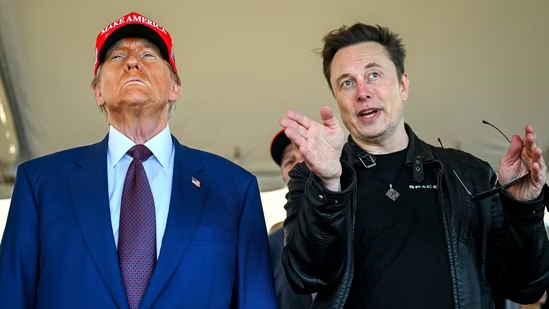U.S Government
WASHINGTON: The United States faced the looming threat of a government shutdown as the holiday season approached, following a late-stage intervention by Donald Trump and Elon Musk that derailed efforts in Congress to keep the government funded into the new year.
With funding for federal agencies set to expire on Friday night, lawmakers had been working toward a solution—a stopgap bill, also known as a “continuing resolution” (CR), which would extend funding and prevent the government from shutting down.
However, opposition to the bill emerged, particularly from debt-conscious conservatives in the House of Representatives, who criticized the bill for containing excessive “pork”—unrelated spending that they argued detracted from the bill’s core purpose. Despite these objections, it appeared the bill might pass a vote on the floor.
Then, the situation took an unexpected turn when Elon Musk, the world’s richest man, used his platform on X (formerly Twitter) to publicly attack the bill. Musk, who is also Trump’s incoming “efficiency czar,” used his 208 million followers to amplify misinformation and criticism about the proposed legislation.
His posts made several false or misleading claims about the bill’s contents. Musk’s tweets set off a chain reaction that saw Trump and Vice President-elect JD Vance intervene, condemning the bill’s add-ons and calling for a surprise demand: an increase in the national debt limit.
The inclusion of a debt ceiling increase typically requires weeks of negotiations and approval from both chambers of Congress. With the shutdown deadline approaching at midnight on Friday, this last-minute demand threw Congress into chaos, leaving lawmakers with little time to find a resolution.
The crisis brought into sharp focus the growing influence of private, unelected figures in Washington, raising questions about Musk’s role in shifting legislative priorities and plunging Congress into crisis.
The consequences of a shutdown would be severe, including the closure of federal agencies and national parks, furloughs for hundreds of thousands of government employees, and significant disruption to public services during the Christmas period.
With time running out, both Republican and Democratic House members scrambled to come up with a Plan B. Republican Speaker Mike Johnson faced heavy criticism for misjudging his party’s support for the bill and for being blindsided by the actions of Musk and Trump.
Johnson is expected to propose a slimmer version of the funding bill, removing many of the controversial add-ons and including a borrowing limit increase.
However, with the Senate controlled by Democrats, the prospects for bipartisan cooperation are bleak.
Democrats have shown little willingness to support the revised plan, leaving the Republicans with the difficult task of passing the bill on their own in a deeply divided Congress. This has proven to be a difficult challenge for Republicans, who can afford to lose only a handful of votes in the House.
House Minority Leader Hakeem Jeffries expressed little hope for collaboration, stating that Democrats would only support a bill that met their agreed-upon terms, making it unclear how the shutdown crisis could be avoided in such a contentious environment.
I am a dynamic professional, specializing in Peace and Conflict Studies, Conflict Management and Resolution, and International Relations. My expertise is particularly focused on South Asian Conflicts and the intricacies of the Indian Ocean and Asia Pacific Politics. With my skills as a Content Writer, I serve as a bridge between academia and the public, translating complex global issues into accessible narratives. My passion for fostering understanding and cooperation on the national and international stage drives me to make meaningful contributions to peace and global discourse.










